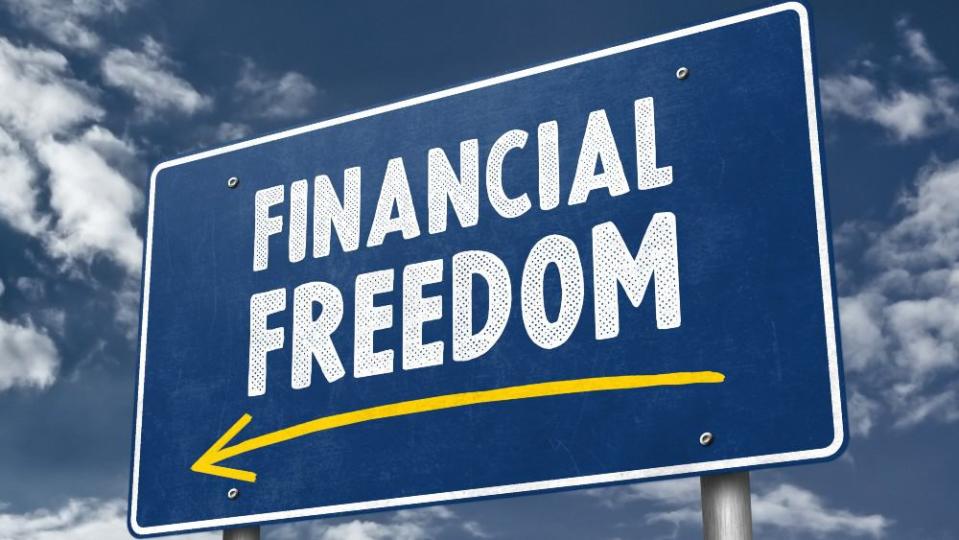1st-Time Investors: 2 Cheap Canadian ETFs to Buy for Financial Freedom

Written by Puja Tayal at The Motley Fool Canada
Congratulations! You have taken the right step in your journey to financial freedom by investing in exchange-traded funds (ETFs). Many people get confused between financial independence and financial freedom. Financial independence is when you have enough money to maintain your current lifestyle and emergency. But financial freedom is when you have enough money to live your dreams. For that, you need to put your money to work.
The first step to financial freedom
You should start investing as early as possible. It is the time in the market that helps you generate wealth. You can’t grow wealthy by saving in bank deposits. It can barely make you beat inflation. Wealth creation means you have greater purchasing power in the future after factoring in inflation.
As a first-time investor, choosing an individual stock can be challenging. You can start by making monthly investments in sector ETFs on which you are bullish. Here are two ETFs to support your journey to financial freedom.
BMO Equal Weight Banks Index ETF (TSX:ZEB)
iShares S&P/TSX Capped Information Technology Index ETF (TSX:XIT)
The bank ETF
The banking industry has facilitated the growth of the economy and trade for a long time. Over the years, the industry evolved with the financial needs of individuals and businesses. Canada’s Big Six banks have gone through the transition and have become what they are today. If you individually invest in each of the six bank stocks, it will cost you above $500. But the BMO Equal Weight Banks Index ETF can give you exposure to all six big banks for less than $36 a unit.
The ETF moves in tandem with the banking sector, which pays regular dividends. It divides its assets under management (AUM) equally between the six banks, collects dividends these stocks give and distributes them to its unitholders. The ETF is in a long-term growth trend, generating a five-year average annual return of 9.46%.
If you’d invested $10,000 five years back in this ETF, it is now $15,656. But note that it comes with an annual management expense ratio (MER) of 0.28% of the ETF value at the end of the period. This means the management expense is higher when the ETF value is high. But the ZEB ETF earns its expenses and gives a higher return than the average inflation of 2%, making it a good investment for wealth creation in the long term.
The ETF is trading closer to its 52-week low, as bank stocks took a hit from economic weakness. Many companies and individuals have delayed their purchases amid rising inflation and expensive borrowing. The demand will rebound when inflation and interest rate hikes ease. The ETF is currently down 18% from its February high, creating an opportunity to buy the dip and book your seat in the recovery rally. I expect it to surge 13-15% during the economic recovery.
The technology ETF
The bank ETF is a way to secure passive income for your daily expenses. But you need stocks that can grow your money three to fourfold. For that, there is iShares S&P/TSX Capped Information Technology Index ETF. The TSX has limited tech stocks, and most of them are software companies. The XIT ETF has all tech stocks under its umbrella, with half of its holdings in Constellation Software and Shopify.
Tech stocks have lower capital expenditures, which reduces entry barriers, making the market highly competitive. A recession or a bubble burst leads to industry consolidation, and only those with market share survive.
The XIT ETF recently corrected as the tech bubble and the crypto bubble induced by the stimulus money burst. While companies like Shopify lost 75% value, the XIT ETF lost 39% value. The ETF may not regain its 2021 high, as that was the peak of a tech bubble, but it can grow when the economy recovers. It has had an average annual growth rate of 20% in the last 10 years. Even if the average growth rate halves to 10%, it can beat inflation and pay its 0.61% MER and generate wealth.
The post 1st-Time Investors: 2 Cheap Canadian ETFs to Buy for Financial Freedom appeared first on The Motley Fool Canada.
Should You Invest $1,000 In S&p Tsx Capped Info Tech Etf?
Before you consider S&p Tsx Capped Info Tech Etf, you'll want to hear this.
Our market-beating analyst team just revealed what they believe are the 5 best stocks for investors to buy in August 2022 ... and S&p Tsx Capped Info Tech Etf wasn't on the list.
The online investing service they've run for nearly a decade, Motley Fool Stock Advisor Canada, is beating the TSX by 27 percentage points. And right now, they think there are 5 stocks that are better buys.
See the 5 Stocks * Returns as of 8/8/22
More reading
The Motley Fool has positions in and recommends Shopify. Fool contributor Puja Tayal has no position in any of the stocks mentioned. The Motley Fool recommends Constellation Software.
2022

 Yahoo Finance
Yahoo Finance 